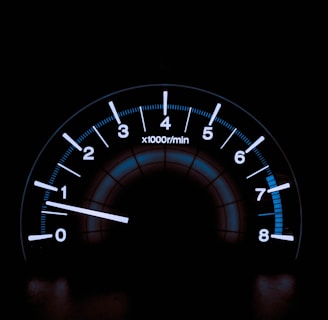What can extra Torque do
12/18/20242 min read


Extra engine torque offers several benefits, especially in vehicles and machinery. Torque plays a critical role in determining how effectively an engine can perform under different conditions. Here are some of the key benefits of having extra engine torque:
1. Improved Acceleration
Extra torque helps the vehicle or engine accelerate more quickly. Higher torque means more power is available to move the vehicle from a standstill or to increase speed at lower engine RPMs.
For cars, motorcycles, and trucks, this translates to faster acceleration, especially from a stop or at lower speeds.
2. Better Towing and Hauling Capacity
Engines with more torque are better suited for towing heavy loads, such as trailers, boats, or other vehicles.
Torque provides the necessary force to move heavy objects, so trucks or SUVs with higher torque ratings can pull heavier weights without straining the engine.
3. Enhanced Off-Road Performance
For off-road vehicles, additional torque is essential for climbing hills, traversing rocky terrain, and moving through mud or sand.
Torque allows the wheels to maintain better traction in challenging conditions, helping the vehicle maintain momentum in tough environments.
4. More Low-End Power
Torque is most noticeable at lower RPMs, which means engines with higher torque can perform better in situations where high speeds aren't necessary, like in city driving, heavy traffic, or steep inclines.
This low-end power means less shifting is required, as the engine can easily overcome resistance at lower speeds.
5. Improved Performance in Everyday Driving
With higher torque, vehicles respond more smoothly and effortlessly to driver inputs, like accelerating on highways, overtaking other cars, or merging into traffic.
It reduces the need to rev the engine excessively, providing a more relaxed driving experience.
6. Better Fuel Efficiency in Certain Conditions
In certain driving conditions, engines with extra torque can be more fuel-efficient. This is because they require less effort (and thus less fuel) to move the vehicle at lower RPMs, as they can deliver more power at lower engine speeds.
This is particularly true when hauling heavy loads, where a higher torque engine does not need to work as hard or rev as high as an engine with less torque.
7. Improved Performance in Heavy-Duty Applications
In commercial vehicles, industrial machinery, and agricultural equipment, extra torque is crucial for performing heavy-duty tasks like lifting, pushing, or pulling.
Machines like cranes, bulldozers, and construction vehicles require substantial torque to carry out their functions effectively.
8. Better Control and Stability
Torque plays a vital role in maintaining control and stability when driving, particularly when towing, carrying heavy cargo, or driving on challenging terrain. With more torque, a vehicle can better handle demanding situations without losing momentum or stability.
9. Reduced Engine Strain
Engines with extra torque tend to work less hard to achieve desired power outputs, which can lead to less strain on the engine during acceleration or under load.
This can result in less wear and tear on engine components, potentially extending the lifespan of the engine.
10. Smoother Driving Experience
Vehicles with more torque often provide a smoother and more responsive driving experience. The ability to deliver power in a more consistent and immediate manner makes for a more pleasant and dynamic drive.
In summary, extra engine torque is beneficial for improving acceleration, towing, off-road capability, fuel efficiency in certain conditions, and overall engine performance, especially in demanding situations. It's a crucial factor for vehicles or equipment that need to carry heavy loads or navigate tough terrain.

